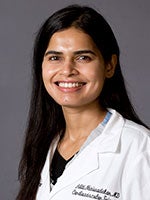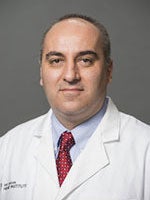Clinical Competency Committee (CCC)
Purpose
In accordance with the ACGME regulations 2013, a Clinical Competency Committee (CCC) has been formed (ACGME 2013 Core Requirement). The CCC will serve as an early warning system if a fellow fails to progress as expected in the training program, and will assist in early identification and move toward improvement and remediation. To make consensus decisions on the progress of each fellow in the program.
Policy Statement
The members of a CCC have responsibility for:
- Determining fellows’ progression on the educational Milestones
- Making recommendations on promotion and graduation decisions
- Recommending remediation or disciplinary actions to the program director
- The committee may make the following recommendations:
- No further action necessary
- Letter of concerns with specific terms and remediation recommendations
- Probation with specific terms and remediation recommendations
- May be with or without extension of time at level of training
- Termination
- Delay or denial of promotion or board recommendation
- The committee may make the following recommendations:
Roles:
- The CCC Chair’s role is to schedule meetings, run the CCC meeting and provide recommendations to the PD if the PD is not present at meeting
- Prepare Milestone report for ACGME reporting requirement
- Monitor fellow progression through the continuum of education in cardiovascular medicine
- Provide objective assessments and feedback about fellows in the ACGME competency areas
- Ensure that the assessment includes input reflecting representative group of faculty and evaluation of all educational components of the training program
Chair
Members
 Courtney Saunders, MD
Courtney Saunders, MDHeart Failure Program
The above committee composition provides for adequate representation from all divisions, services, sites, including broad representation of junior through senior faculty.
Procedure
- Must meet semi-annually at a minimum
- Must be actively involved in fellow education
- Participate in committee deliberations regularly
- Provide consistent, timely evaluations
- Feedback must be constructive
- The Program coordinator will keep detailed minutes of all meetings
Committee Responsibilities
Evaluation and Reporting:
The CCC shall meet on a semi-annually basis in June and December of every academic year and:
- Review all fellows’ evaluations by all evaluators semi-annually at each PGY level
- Preparing and assure the reporting of Milestones evaluations of each fellow semi-annually to ACGME
- Making recommendations to the program director for –
- promotion
- remediation
- dismissal
The PD will used the CCC recommendations as part of the fellows’ semi-annual review.
Resources used to base ratings:
- Monthly end of rotation evaluations from faculty
- Fellows’ self-evaluations
- 360° Evaluations including patients, clinic managers and nurses
- Procedure logs
- Outpatient evaluations from PM attending
- Scholarly activity
- In-Training exam results
- Attendance records
- Input from other colleagues and providers when available
- …and whatever additional information is available
It is expected that the CCC members will spend about 1 hour per fellow at each meeting.
Upon concluding each semi-annual session, the meeting should provide the program director with:
- Explicit expectations of the fellow
- Identifies areas to work on
- Earlier identification of under-performers
- Provides aspirational goals for over-achievers
Administrative Responsibilities:
The CCC will meet on an ad hoc basis to:
- Develop and manage systems for evaluation of fellows from multiple sources (e.g., faculty, peers, patients, self, other professional staff).
- Manage a faculty advisor system to provide fellow mentorship and feedback about performance at least semi-annually.
These meetings should –
- Guide curriculum development
- Develop evaluation tools
Meetings: The CCC shall on a semi-annually basis in June and December of every academic year.
Timeline: November-December session
| Event | Time |
|---|---|
| CCC members will receive resources to review in order to rate each of the fellows | Last week of November |
| PD will meet face-to-face with each fellow individually to identify any concerns and create an action plan for improvement and remediation when necessary | First week of December |
| PD will report findings to ACGME | Second week of December |
Timeline: June session
| Event | Time |
|---|---|
| CCC members will receive resources to review in order to rate each of the fellows | Second week of June |
| PD will meet face-to-face with each fellow individually to identify any concerns and create an action plan for improvement and remediation when necessary | Third week of June |
| PD will report findings to ACGME | Last week of June |
| Policy Owner: | Cardiovascular Disease Fellowship Policy Committee |
| Policy Approved by: | Cardiovascular Disease Fellowship Policy Committee Clinical Competency Committee |
| Policy Effective Date: | July 1, 2014 |
| Policy Review Date: | March 1, 2019 |


